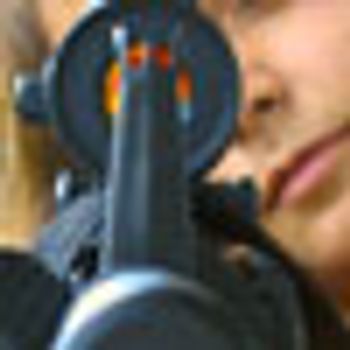
Behavioral problems “masquerade” as physical symptoms. The time has come to treat the whole patient and to make psychiatry part and parcel of primary care.

Behavioral problems “masquerade” as physical symptoms. The time has come to treat the whole patient and to make psychiatry part and parcel of primary care.

It is the opinion of this psychiatrist that overtesting and overtreating is promoted and protected by the enormous economic and political power of the medical industrial complex. Here's just a beginning list of what needs to be done.

When the diagnosis of ADHD is clear, treatment can be successful, and education and supportive psychotherapy helpful. However, complications are common.

In the opinion of this psychiatrist, it is long past time to use the Internet to inform and empower health care consumers and reduce the monopoly pricing power of suppliers.

There is a subtle reluctance to admit that, at least in the field of medicine, the doctor knows more than the patient and is the expert in the area in which the patient is having trouble.

We have the target protein for Alzheimer, the antibody to knock out the protein, and the imaging test locating the protein in the brain, but there still remains one problem . . . who should receive the antibody?

This blog address the multidisciplinary approach to mental health care.

Dr Osheroff played a significant role for psychiatric practice in the 1980s. For many, his situation personified the changes that swept psychiatry at that critical juncture.

For now, it is encouraging to know that psychiatrists remember that they, too, are physicians first who can tap into their medical training to provide comprehensive patient care.

This letter is a plea to the leadership of the APA to develop flexible, user-friendly guidelines for criteria being implemented in the new CPT Evaluation and Management codes.

"I don’t want to climb any more cliffs. I’m looking for a slow job in a small town on the prairie," says the author in this work of fiction.

At the recent annual APA meeting, Dr Abraham Halpern was posthumously honored for the second annual Humanitarian Award by the American Association for Social Psychiatry. He was honored for his contributions to ethics, forensics, and advocacy of social issues.

To understand the psychodynamics of the dissociative fugue, Dr Michael Sperber analyzes some of the characters in a collection of interrelated vignettes set in small town America.

As most mental health professionals know by now, psychiatry's D-Day is rapidly approaching. DSM-5 addresses diagnostic categories, but there has never been an official treatment manual to complement the diagnostic one.

The art of living is the ability to use life’s inevitable traumas in some constructive fashion. This occurs on an odyssey that the resilient take that could be termed “the Journey of the Traumatized Hero.”

While it is true that the intense grief of bereavement and major depressive disorder often share some features-for example, tearfulness, insomnia, low mood, and decreased appetite-there are many substantive differences.

Money should not be wasted on futile preventive programs to detect mental health problems that don't yet exist. Instead, resources should be invested where there is desperate need-to properly treat and decently house psychiatric patients who are now shamefully neglected.

When critics of psychiatric diagnosis insist that terms like “schizophrenia” or “bipolar disorder” are inherently stigmatizing, they are unwittingly perpetuating the very prejudice they wish to end. It is time to shine a bright light on this self-fulfilling prophecy.

The 3% to 5% of kids who are particularly gifted are also at special risk for being tagged with an inappropriate diagnosis of mental disorder. Caution is necessary when diagnosing.

After each violent tragedy, the politicians hypocritically mourn and harrumph, but wind up buckling under pressure from the NRA, fiscal constraints, and the prison and gun lobbies. Repeated dramatic events can shake the complacency and cowardice of a stalemated Congress and state legislatures.

It is yet unclear whether the overwhelming shock of Newtown will galvanize action not only to prevent future mass murderers, but also to finally reduce the public health and mental health risks of more chronic, common, and routine gun violence in America.

The discovery of an unknown family member can bring about joy or grief, and raise many clinical questions about the psychodynamics that are at play within families.

About a year ago, I wrote the blog “Are Dogs Man's Best Therapist?” To my surprise, it turned out to be a very popular one. Since then, dogs continue to be in the news for their therapeutic effect, including being brought to Newtown right after the mass murder there.

Crucial changes occurred that will greatly influence the organization of services, reimbursement, and diagnosis. It even ended in an exclamation point, as the tragedy in Newtown, Connecticut punctuated the need for improved mental healthcare services.

What we know for sure is that for all the young children and adults who were killed in Newtown, their world ended a week ago. Soon after the tragedy, one of the fathers of a child killed tearfully pleaded for society to learn from what happened in order to prevent future mass murders. Here, recommendations from a psychiatrist.